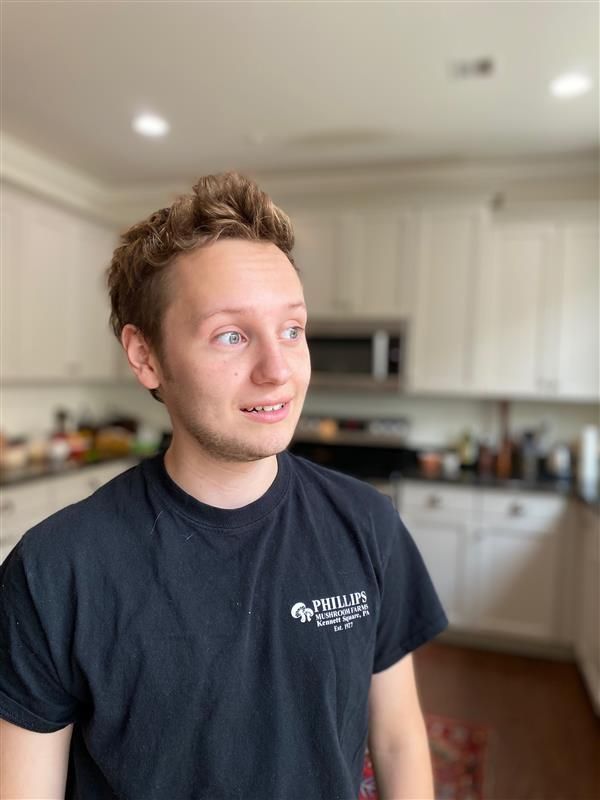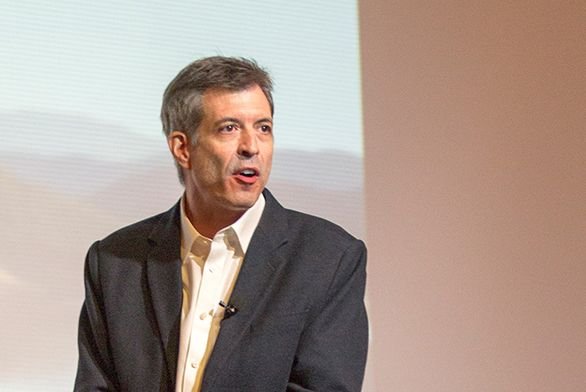Brains on his Mind
January 9, 2018 | By Tim Pratt

Over the years, psychiatrist Dan Lieberman (A85) estimates he has spent hundreds of hours writing academic articles.
Yet, the George Washington University faculty member says few people, aside from fellow academics and psychiatrists, would read them.
Now, Lieberman is venturing into writing for the general public.
The subject? Dopamine.
“This is the chemical of sex, drugs and rock and roll,” he says.
Lieberman is preparing for the August 2018 release of his new book, The Molecule of More: How a Single Chemical in Your Brain Drives Love, Sex, and Creativity―and Will Determine the Fate of the Human Race. He co-authored the book with writing partner Michael Long.
Lieberman also recently gave a talk about dopamine at a TEDx event in Wilmington, Delaware. The talk, delivered in November, received an enthusiastic round of applause.
“I was really excited about getting the word out (about dopamine) because I think it explains so many things about life,” he says.
Dopamine is a chemical which, when released by the brain, plays a major role in reward-motivated behavior. Many addictive drugs increase dopamine activity.
For Lieberman, a psychiatrist who specializes in addiction and mood disorders, the brain is a topic that has long been a source of fascination. He has been working on dopaminergic problems for 20 years.
“We have this idea that we are in control of our brain, but we are absolutely not,” he says. “Our brain is a wild beast in some way. You lose your temper, you overeat, you sleep in instead of exercising. This book explains why it happens.”
Lieberman, who completed medical school and residency training at New York University after graduating from St. John’s, says the book took about three years to complete. The research he did also opened his eyes to some new facts he now incorporates into his psychiatry work.
“One of the things this book is about is how dopamine drives us to desire things we think are going to make our life better,” he says. “But dopamine only processes things in the future. Once the future is present, dopamine shuts down.”

The publication is not a self-help book, he says. He hopes people will read it simply because it’s interesting.
“What it really is,” he says, “is ‘Look how cool this is. Look at an amazing explanation for human behavior.’”
Lieberman also hopes it opens people up to pursuing careers in psychiatry or other brain-related fields. He recalls becoming interested in the brain after reading a fascinating book years ago.
Members of the St. John’s community may be especially interested in reading it, he says.
“Even though the book is about brain science, there is some philosophy,” he says. “I bring in some St. John’s favorites to play some cameo roles. A little Aristotle and things like that. The great philosophers were thinking about the brain.”
Tedx Talk
With the excitement of completing the book, Lieberman decided to reach out to TEDx organizers about giving a talk on dopamine. TEDx Talks are independently organized offshoots of the original TED Talk series, where people from all over the world gather to share ideas.
Organizers accepted his idea, and he had three months to prepare.
With a busy schedule of teaching and treating patients, Lieberman worked on the speech in his free time. Boiling the topic down to a 15-minute talk, however, proved difficult.
Lieberman wrote and rewrote his speech, and practiced every day, first thing in the morning, for two months. Then, when it came time for the dress rehearsal a day before the talk, disaster struck. His mind “went blank” halfway through the talk, he says, and he began to panic. He wondered what would happen the next day.
On the day of the talk, Lieberman stood off-stage awaiting his turn. He says his heart was “pounding” as he prepared to give his presentation. About 250 people were in attendance.
“I realized I had done everything I possibly could, but it wasn’t enough,” he says. “So I said to my unconscious mind, ‘We are in this together. Help me out.’”
The speech went off without a hitch and Lieberman left the stage to a round of applause.
Now back at George Washington, Lieberman looks back fondly on the experience and is excited about the upcoming release of his book. He also says he still thinks about St. John’s “pretty much every day of my life.”
“It was just an amazing experience,” he says. “The great books have a direct impact on my day-to-day life, but it’s also very helpful for me as a psychiatrist to think about the big questions in the back of my mind.”

